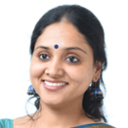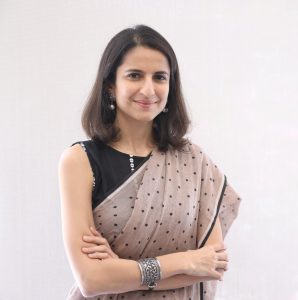India, with its ambitious goals for achieving the Sustainable Development Goals (SDGs) by 2030, presents a picture of both immense potential and a pressing challenge.
The estimated funding gap looms large as India continues to fall short of NITI Aayog’s estimated spending (13 percent of GDP) needed to meet the 17 UN SDG commitments. However, within this challenge lies a unique opportunity – a chance to redefine India’s capacity for impact and unlock a new era in the philanthropy landscape that moves beyond simply unlocking capital.
Radha Goenka, Director of RPG Foundation and the Founder of Pehlay Akshar, believes it’s a call to leverage and catalyse the impact through a strategic approach to fund deployment. Emphasising a vision that extends beyond conventional philanthropy, she stated, ‘We’re trying to really pick corners that are catalytic in the impact it can drive and aren’t being addressed in society.’
RPG Foundation, under Goenka’s guidance, is carving a path for India’s future by channelling investments into youth, women, environment, and culture. Pehlay Akshar Foundation, one of RPG’s flagship initiatives, is dedicated to fostering functional English education within government schools across India. The Heritage Project Foundation, another venture Goenka initiated, strives to bring Indian heritage sites to life through immersive and meaningful experiences. Lastly, Artisan:re, a social enterprise, is redefining the textile industry through a commitment to regenerative agriculture and end-to-end traceability.
At the Dasra Philanthropy Week (DPW) 2024, Alliance regional representative, Aarti Mohan had the opportunity to converse with Goenka regarding the evolving landscape of philanthropy in India.
Aarti Mohan: How was the experience at the Dasra Philanthropy Week? What would you like to see more from event gatherings like these?
Radha Goenka: The event was really enlightening. My major takeaway is the need for increased funding to align with Niti Ayog’s SDG agenda for 2030. The shift of attention from education and healthcare to arts and culture is noteworthy and the discussion on women leader’s contributions resonated with me, emphasising their impactful involvement and focus.
It’s interesting to note that many participants often speak without truly listening, however, everyone at Dasra Philanthropy week is actively listening to all the conversations. I believe future events should focus more on collaboration, active listening, and shared insights. Finding ways to enhance collaboration can make these gatherings even more valuable.
AM: From your experience, what specific data gaps do you believe currently exist in the philanthropic landscape that should be addressed to enhance decision-making?
RG: A notable gap I observed is the limited focus regarding data on impact amidst discussions about the funds allocated. We need more insights into the ‘rupee to impact’ ratio. There’s a need for a deeper exploration of how each rupee translates into impact, especially when considering different sectors.
Additionally, there’s a need to recognise that the impact driven by businesses, and not just philanthropy, opens up new avenues for exploration. During my panel discussion today on the intersections between business and impact at Dasra Philanthropy Week, I emphasised the significant role that businesses play in driving positive change through for-profit initiatives.
It raises a compelling question – in the realm of impact, why do we predominantly focus on philanthropy? Exploring the impact generated by businesses is essential. Perhaps, as we delve into it, we might discover that businesses contribute equally or even more impact. This realisation could unlock numerous opportunities and pose intriguing questions, making it an area worthy of further exploration.
AM: Could you elaborate on the RPG Foundation’s decision-making process in venturing into new focus areas? Is there a specific logical framework guiding the identification of new sectors, geographies, or beneficiary groups?
RG: Regarding the existence of a logical framework behind entering new spaces, I’d say it’s a mix of yes and no. Yes, as we follow three sacrosanct pillars. Firstly, we identify real societal problems that are often overlooked. If there’s aAMeady substantial attention, we opt out, focusing on catalytic impact. We consciously withdraw when a sector gains enough traction and funding; for instance, post-Covid-19, we reduced involvement in the care economy due to increased attention.
The three pillars that inform our work include identifying real problems, leveraging our donor companies’ strengths, and enabling scalability through partnerships with the government.
Secondly, we support independent NGOs, funded by companies beyond RPG, ensuring wider backing. When it comes to leveraging strengths, a prime example is our strategic approach to expanding into new geographies. We deliberately choose locations in proximity to funding companies, enabling us to benefit from various resources. This includes access to office spaces without incurring rent, as well as collaboration with their teams for Monitoring and Evaluation (M&E). We tap into multiple facets of their operations, such as HR and finance, to enhance our overall support structure.
On a personal level, our family has a strong affinity for art, and we capitalise on this passion in our initiatives. For instance, in the heritage space, we engage artists on-site, adding a creative dimension to our projects and enabling economic value. This holistic approach allows us to identify and leverage our unique strengths effectively. In our regenerative agriculture project, we harness our network for direct market linkages with cotton farmers.
The third pillar, scale, remains central, evident in our preservation-focused heritage project. While these pillars guide our structure, our passion often fuels our choices, though my team occasionally reins in my daily influx of new ideas.
AM: You highlighted an intriguing point concerning the economic value associated with the heritage project. I’m keen to explore your insights on how this concept of economic value can extend to various sectors.
RG: I firmly believe in the imperative shift towards the intersection of business and philanthropy. These are two distinct worlds with differing operational and ideological frameworks, and the key lies in navigating the in-between space.
Philanthropy needs to move towards business, and vice versa, creating win-win scenarios where businesses become socially conscious entities, resonating with an increasingly aware consumer base.
It’s not about one or two models; every company and nonprofit should adopt this approach. It’s time for a collective movement towards this transformative space, unlocking vast potential for reciprocal value creation.
AM: How do you navigate the delicate task of balancing incentives for various stakeholders you work with? What challenges arise in this process, and how do you approach their mitigation?
RG: Collaborating with the government, for example, has been a rewarding experience for us. Despite common perceptions, I find them to be smart and efficient, provided you have the right people on board. It’s crucial to approach these collaborations with a mindset of adding value to the government rather than merely seeking assistance.
Our successful partnerships, such as the Heritage Project, exemplify this approach. In that project, our initial capital investment was X, but leveraging the government’s support, we mobilised a significant 10X. We maintain strategic control over this collaboration, understanding the government’s spending capabilities and limitations.
Effectively, working with the government is akin to partnering with a large bureaucratic entity. It’s about comprehending their constraints and structuring initiatives within the framework of their tendering and processes. Our experience has taught us to identify areas where government funding aligns with our goals and contribute where systemic issues hinder their spending.
AM: Exploring the ‘Swayam’ initiative on your website was intriguing, especially its focus on upskilling women in male-dominated sectors such as construction and logistics. Could you share insights into the decision to diversify skill development in this way? Additionally, could you elaborate on the challenges encountered on the ground and the strategies employed to address them?
RG: I believe there are multifaceted reasons behind our selection. For instance, our Skilling of Women program has successfully trained over 30,000 women, with a significant number focusing on becoming General Duty Assistants (GDAs) in the health sector. This particular role offers a transformative journey, transitioning individuals from unpaid care to the paid economy within a three-month training period. Witnessing this rapid and tangible change underscores the profound impact achievable in a short span.
AM: Looking ahead, considering the significant SDG gaps and the need for substantial capital infusion to catalyse further support from government and businesses, I’m eager to hear your insights on the future trajectory of RPG Foundation. How do you foresee it navigating the landscape to effectively contribute to closing these gaps and mobilising crucial support?
RG: I envision a deeper focus rather than expanding further. We’ve established successful proof of concepts across our projects, and we’re at a stage where we are confident in what we’ve built. The next phase involves scaling these models by extending collaborations through partnerships with other foundations, companies, and government. We aim to share these proven concepts, fostering collaborations and encouraging others to leverage the successes we’ve achieved.
Aarti Mohan is the Alliance regional representative for South Asia





Comments (0)
She is truly great. I appreciate her